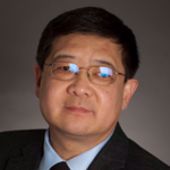
Tong Yu, PhD, PEng
Pronouns: he/him/his
Contact
Professor, Faculty of Engineering - Civil and Environmental Engineering Dept
- tongyu@ualberta.ca
- Phone
- (780) 492-6307
- Address
-
7-239 Donadeo Innovation Centre For Engineering
9211 116 StEdmonton ABT6G 2H5
Overview
Area of Study / Keywords
Environmental Engineering and Science Professor
Research
Research Interests
My general research interests are in the areas of biological processes in engineered and natural environmental systems, particularly in the areas of biofilm processes and microsensor techniques. I have studied biofilm processes in wastewater treatment, in drinking water distribution system, in river sediment, and in oil sands tailing water. My study of microsensor techniques includes oxygen, pH, redox potential, cholrine, monochloramine, ammonium, nitrite, sulfide, hydrogen sulfide, sulfate, methane microsenors.
Working with my graduate students, we built the Microsensor Laboratory for Environmental Biofilm Studies, supported by a CFI New Opportunities grant and an NSERC grant. It is the first-of-its-kind in Canada. By using the apparatuses in this laboratory, we have mapped the three-dimensional distribution of oxygen in biofilms.
Research Currently in Progress
My current research focuses on three areas:
- Biological processes in water and wastewater treatment
- Development and application of microsensor techniques for environmental applications
- Oil sands tailings water treatment using biological processes
Selected Publications
Modayil, S., Seet, T., Seargeant, D., Gammie, L., and Yu, T. 2002. Testing and Evaluation of Lining Materials for Drinking Water Pipeline Rehabilitation, Proceedings of 2002 Water Quality Technology Conference, Seattle, Washington, November 10-13.
Lu, R. and Yu, T. 2002. A Field Study on Oxygen Penetration in Wastewater Biofilms, Proceedings of the 75th Annual WEF Conference, Chicago, Illinois, September 28 - October 2.
Lu, R. and Yu, T., 2002. Fabrication and Evaluation of an Oxygen Microelectrode Applicable to Environmental Engineering and Science, Journal of Environmental Engineering and Science, Vol. 1, pp. 225-235.
Yu, T. and Bishop, P.L., 2001, Stratification and Oxidation-Reduction Potential Change in an Aerobic and Sulfate-Reducing Biofilm Studied Using Microelectrodes, Water Environment Research, Vol. 73, No. 3, pp. 368-373.
Zhu, X, Suidan, M.T., Alonso, C, Yu, T., Kim, B.J. and Kim B.R., 2001, Biofilm Structure and Mass Transfer in a Gas Phase Trickle-Bed Biofilter, Water Science and Technology, Vol. 43, No. 1, pp. 285-294.
Bishop, P.L., Yu, T., Kupferle, M.J., Moll, D., Alonso, C. and Koechling, M., 2001, Teaching Future Professors How to Teach, Water Science and Technology, Vol. 43, No. 5, pp.327-332.
Bishop, P.L. and Yu, T. 1999. A Microelectrode Study of Redox Potential Change in Biofilms, Water Science and Technology, 39 (7): 179-185.
Yu, T. and Bishop, P.L. 1998. Stratification of Microbial Metabolic Processes and Redox Potential Change in an Aerobic Biofilm Studied Using Microelectrodes, Water Science and Technology, 37 (4-5): 195-198.
Yu, T., Bishop, P.L., Galal, A. and Mark, Jr., H.B. 1998. Fabrication and Evaluation of a Sulfide Microelectrode for Biofilm Studies (Chapter 19), In Polymers in Sensors: Theory and Practice, Akmel, N. and Usmani, A.M., Eds., American Chemical Society, Washington, DC, pp. 231-247.
Atta, N.F., Galal, A., Mark, Jr., H.B., Yu, T. and Bishop, P.L. 1998. Conducting Polymer Ion Sensor Electrodes - III. Potentiometric Sulfide Ion Selective Electrode, Talanta - An International Journal of Analytical Chemistry, 47: 987-999.
Courses
CIV E 429 - Environmental Engineering Design
Fundamentals of municipal planning and design of water supply, water and wastewater treatment, storm water management, or wastewater collection and management systems. Course includes design projects, field trips, and presentations. Students work in teams on a design project. Prerequisites: CIV E 321 and ENV E 421. Note: Restricted to fourth-year traditional and fifth-year co-op engineering students.
ENV E 440 - Facility Design
Design of water supply, water treatment, wastewater treatment, or sewerage and storm water management facilities. Course includes major design projects, field trips, and presentations. Students work in teams on a design project. Prerequisites: ENV E 324 and 421. Note: Restricted to fourth-year traditional and fifth-year co-op engineering students.